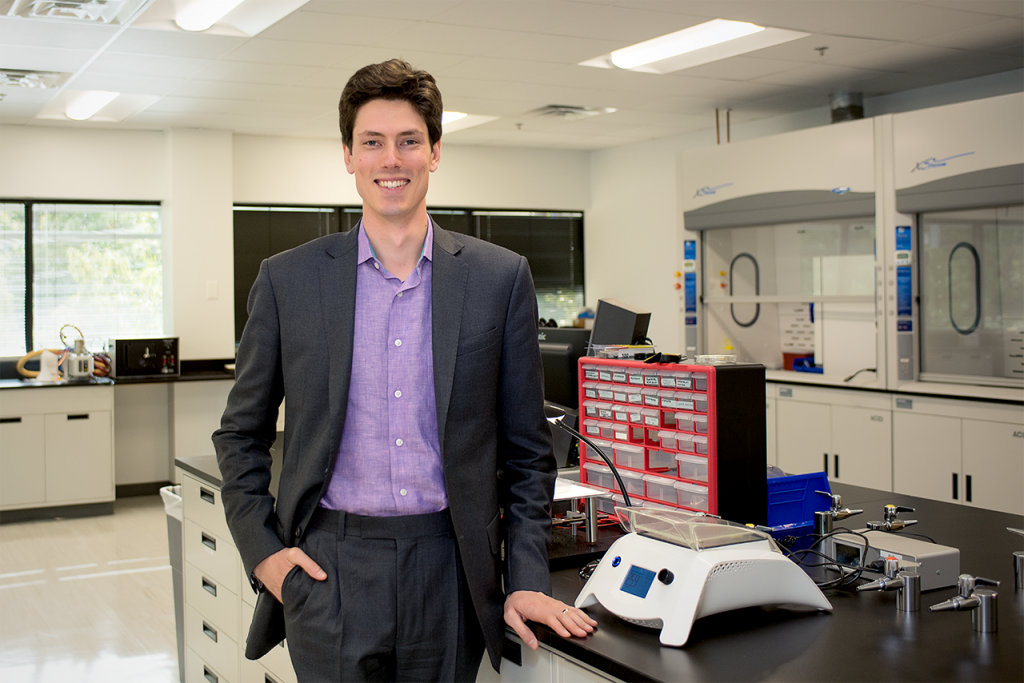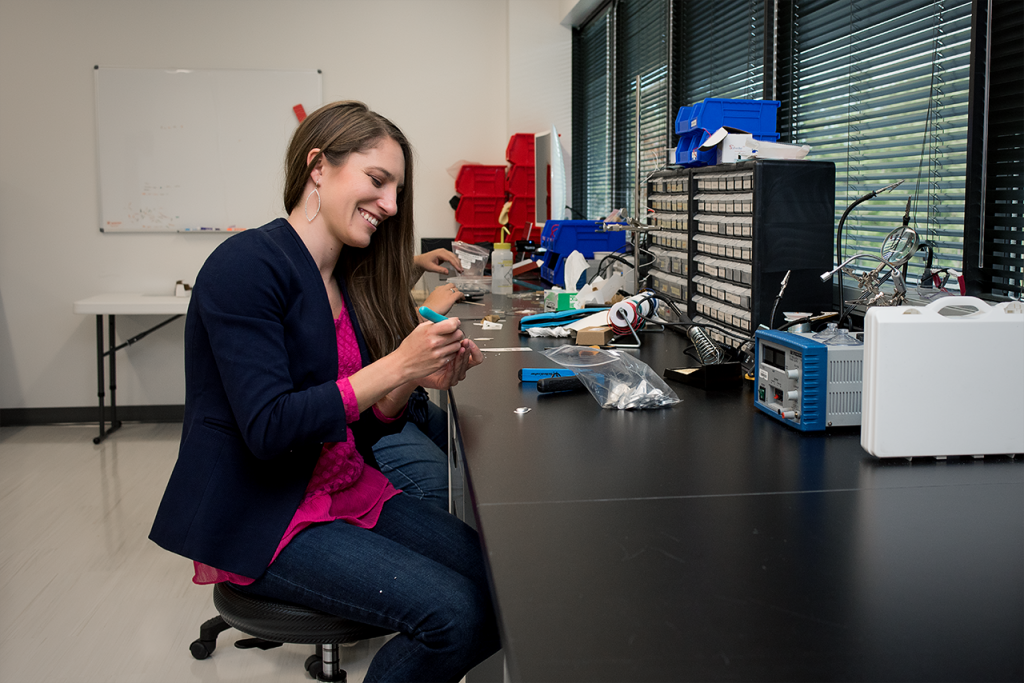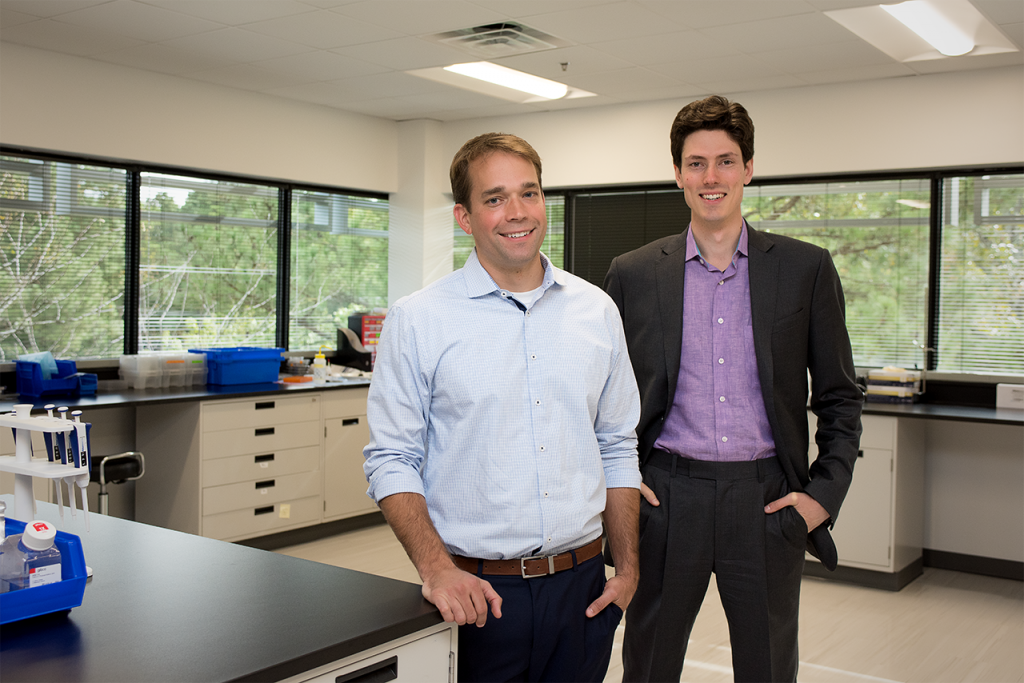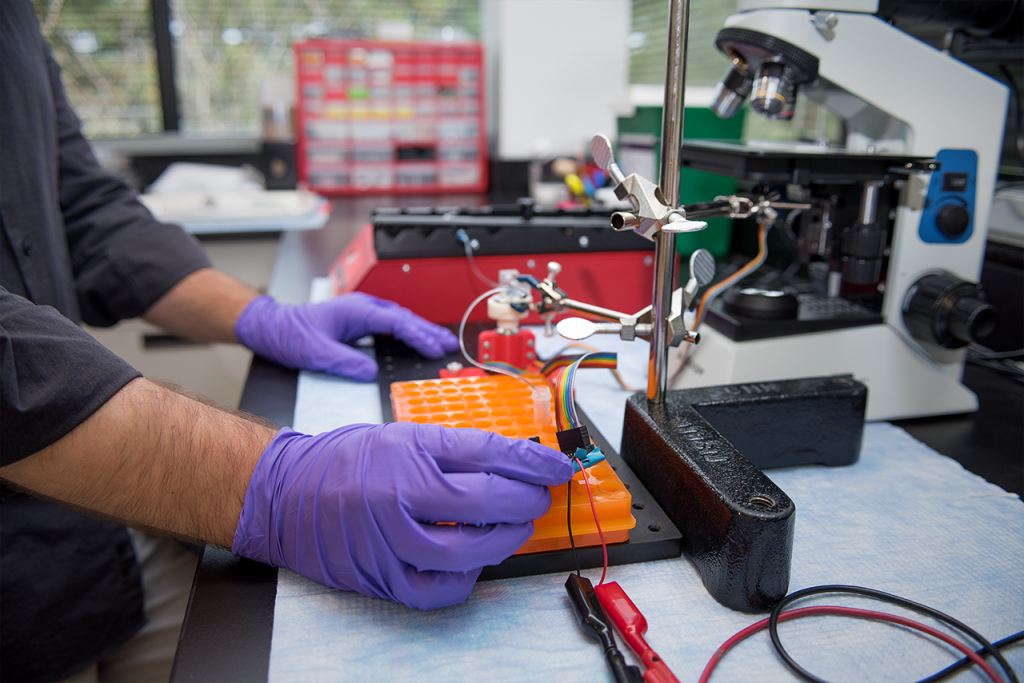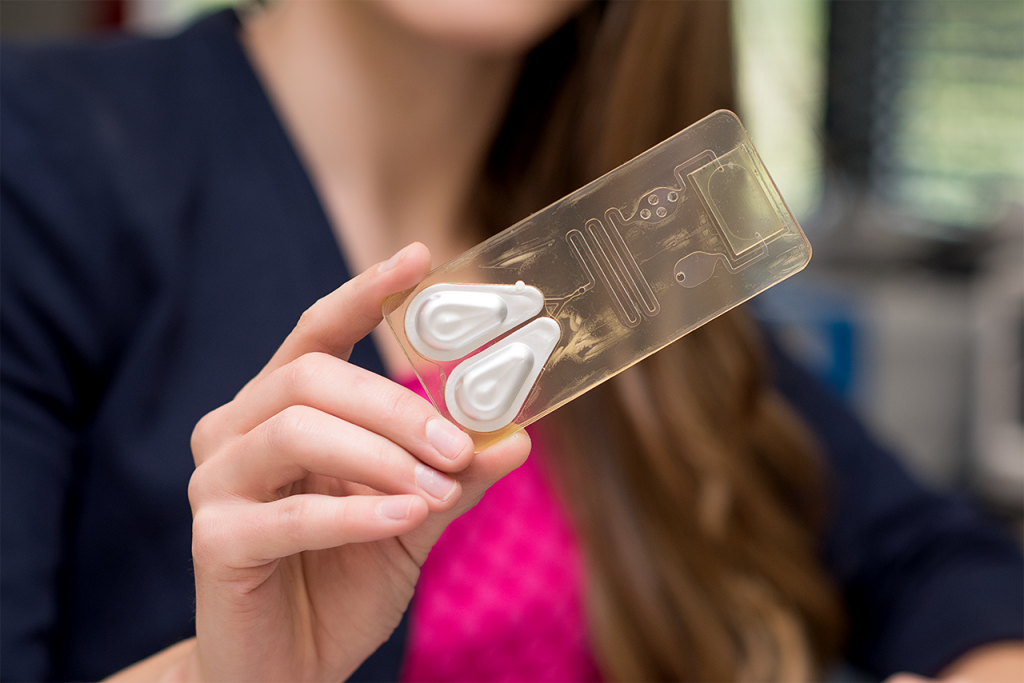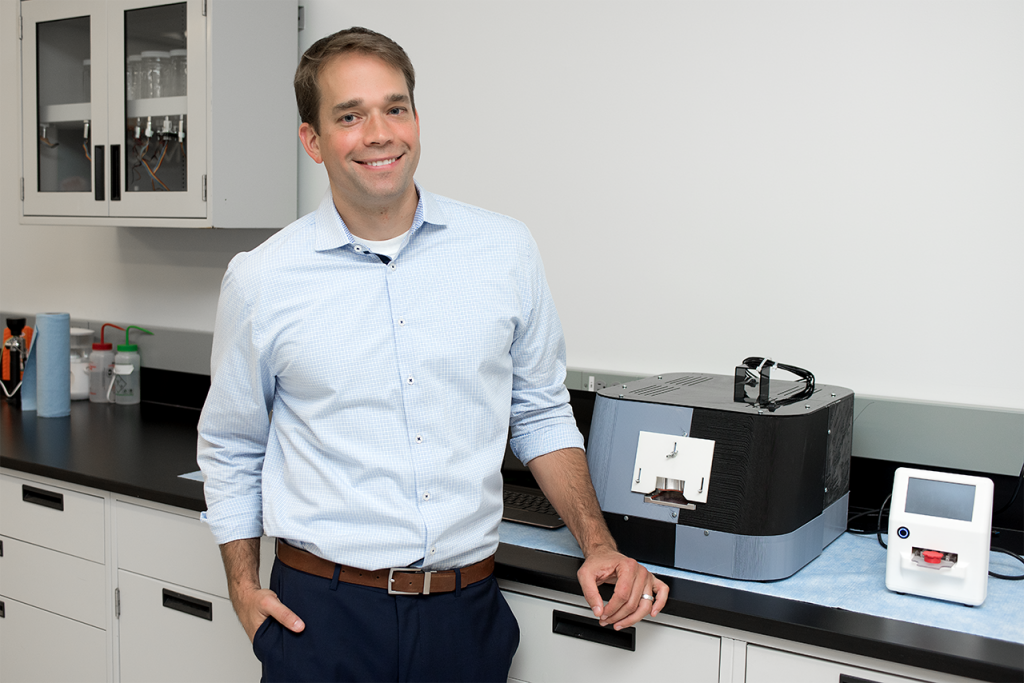Ricky Spero
Using unconventional approaches to produce products that perform better and cost less
Ricky Spero is co-founder and CEO of Redbud Labs. An alumnus of UNC-Chapel Hill, he is an active participant in the local innovation and entrepreneurship community. Learn how this scientist and the team at Redbud Labs are creating a next-generation diagnostic that will improve patient care and reduce hospital costs in critical-care settings, including trauma and surgery.
Q & A
Tell us a little bit about yourself and Redbud Labs – what problem are you trying to solve?
It takes years and millions of dollars to develop a new diagnostic device. Our mission is to change that. We make components that overcome common but technically challenging design barriers. When our customers choose to use our products, their devices perform better and cost less.
How are you taking an entrepreneurial approach in your work – and how does that approach amplify the problem-solving capacity of your work?
Our approach is unconventional. We’ve taken very little investor money. We’re a component vendor, not a diagnostics company. And we’ve been very, very patient. We make certain that our technology is ready before we send it out the door. We don’t overpromise or overhype. The result is an organization that’s intellectually honest to its core. When we say our products work, our customers believe it. That credibility is essential, because we ask our customers to bet their products’ success on our ability to deliver.
What resources at UNC helped you on your innovation journey – and why?
UNC’s culture is both entrepreneurial and a little skeptical. That’s a perfect combo for doing scientifically challenging work. UNC is also well-networked into the broader Triangle. I can’t imagine a better platform to launch a life science company.
Can you talk about the importance of having a faculty mentor as part of your entrepreneurial journey?
My co-founders, Rich Superfine and Russ Taylor, are extraordinary scientists, inventors and builders. They’re the ones who taught me what it means to be technologically omnivorous. They remain involved at Redbud, and that has helped make these qualities core to our culture at Redbud.
What’s been your biggest challenge in getting your idea off the ground?
This sounds a little abstract, but for a given type of financing, some activities are a better fit than others. Our biggest challenge was getting the technology roadmap, business model and financing model to align. It took us a while, but once these three things were aligned, everything got easier.
As a graduate student, how did you balance your full-time academic and research responsibilities with your interest in innovation and entrepreneurship?
I had good timing. I was just wrapping up my PhD when Rich and I started talking about forming a company. UNC also awarded me the Innovation Fellowship. That was essential. Without it, I wouldn’t have been able to bear the risk of starting a company.
What advice would you give to other grad students who want to hone their own entrepreneurial skills and put them into action?
I used to believe that the most important thing was to have good ideas. I still believe that, and I suspect most scientists do too. But now I believe that good ideas come from good execution. So just get started and look for new ideas in the results of your work.

 | UNC-CH
| UNC-CH
